Facing public anger and concern over the nuclear meltdown unfolding in Japan, German Chancellor Angela Merkel announced temporary shutdown of several nuclear reactors.
On March 12, more than 60,000 anti-nuclear protesters in the south-western state of Baden-Wuerttemberg formed a 45 kilometre human chain from Stuttgart to the Neckarwestheim 1 nuclear plant.
Smaller protests took place in more than 450 towns and cities across Germany, anti-nuclear organisation Irradiated said. More protests are planned for March 26.
-
-

Ireland’s governing Fianna Fáil (FF) party and its Green Party coalition partner were massacred in a general election revolt on February 26. The most successful establishment party in Western Europe for the past 80 years, FF was demolished – reduced from 77 to only 20 seats on the back of public outrage over austerity measures and social spending cuts.
-
An Ecuadorian court handed down a landmark verdict in an 18-year case against international oil-giant Chevron on February 14. The company was fined US$8.6 billion for polluting the Amazonian basin, and $900 million in costs. The case — perhaps the biggest environmental case in history — was filed on behalf of around 30,000 peasants, farmers, and indigenous Ecuadorians who have suffered the ill-effects of Chevron’s toxic legacy.
-
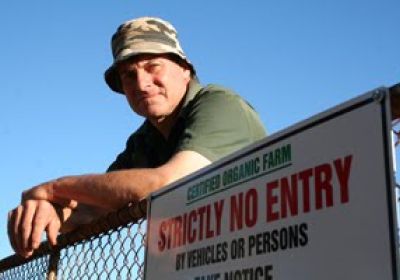 In December last year, Kojonup organic grain farmer Steve Marsh found genetically modified (GM) canola plants from a neighbouring farm had contaminated 293 hectares — 63% — of his property. The farm in Western Australia’s Great Southern region is Australia’s first known case of GM canola contamination. Marsh has had his organic certification revoked as a result. The Monsanto Round-Up Ready Canola was being grown on a neighbouring farm after a moratorium on growing GM crops was lifted a year ago by the WA Liberal government.
In December last year, Kojonup organic grain farmer Steve Marsh found genetically modified (GM) canola plants from a neighbouring farm had contaminated 293 hectares — 63% — of his property. The farm in Western Australia’s Great Southern region is Australia’s first known case of GM canola contamination. Marsh has had his organic certification revoked as a result. The Monsanto Round-Up Ready Canola was being grown on a neighbouring farm after a moratorium on growing GM crops was lifted a year ago by the WA Liberal government. -
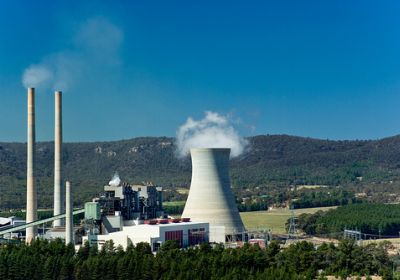 Testimony to the NSW upper house inquiry into the sale of NSW’s electricity assets has alleged that only a fraction of the $5.3 billion price tag will reach the public purse. Billions will be eaten up by “associated costs”. These costs include about $1.5 billion in government funds to buy a new coal mine north-east of Lithgow to ensure a cheap coal supply for the new private owners. A further $1 billion in coal price subsidies is guaranteed to the private energy companies over the life of the mine.
Testimony to the NSW upper house inquiry into the sale of NSW’s electricity assets has alleged that only a fraction of the $5.3 billion price tag will reach the public purse. Billions will be eaten up by “associated costs”. These costs include about $1.5 billion in government funds to buy a new coal mine north-east of Lithgow to ensure a cheap coal supply for the new private owners. A further $1 billion in coal price subsidies is guaranteed to the private energy companies over the life of the mine. -
 Manic Street Preachers Postcards From a Young Man (Sony, 2010) From its opening strains, the Manic Street Preachers’ 10th and latest album, Postcards From a Young Man, is clearly the successor not only to 2007’s Send Away The Tigers, but also to their critically acclaimed 1996 success Everything Must Go.
Manic Street Preachers Postcards From a Young Man (Sony, 2010) From its opening strains, the Manic Street Preachers’ 10th and latest album, Postcards From a Young Man, is clearly the successor not only to 2007’s Send Away The Tigers, but also to their critically acclaimed 1996 success Everything Must Go. -
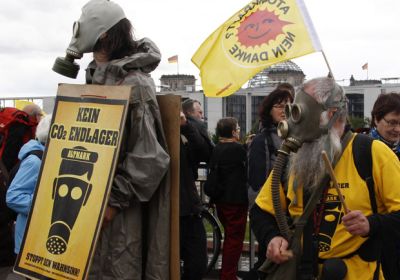 Germany’s centre-right government is facing what many have dubbed a “hot autumn” of protests, as conflict over a range of social, political and environmental issues come to a head across the country. As the governments of Europe attempt to offload the costs of the financial crisis onto working people, German Chancellor Angela Merkel has initiated a series of “austerity” measures aimed to undermine Germany’s social welfare system.
Germany’s centre-right government is facing what many have dubbed a “hot autumn” of protests, as conflict over a range of social, political and environmental issues come to a head across the country. As the governments of Europe attempt to offload the costs of the financial crisis onto working people, German Chancellor Angela Merkel has initiated a series of “austerity” measures aimed to undermine Germany’s social welfare system. -
More than 50,000 German anti-nuclear protesters defied 17,000 police over the weekend of November 6 and 7and blockaded a train carrying spent nuclear fuel rods from France to Germany. On November 8, the fuel rods finally reached the small north German village of Dannenberg. From there, they were trucked a further 20 kilometres to an interim nuclear storage facility in the town of Gorleben. Anti-nuclear activists drove more than 600 tractors, blockading roads and the railway in the largest ever demonstration over the transportation of spent nuclear fuel rods in Germany.
-
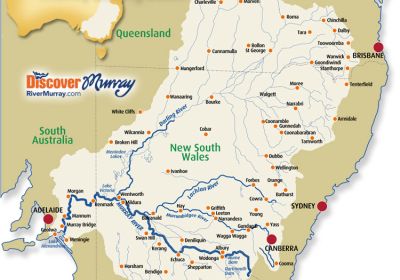 The River: A Journey through the Murray-Darling Basin By Chris Hammer Melbourne University Publishing 2009, $34.99 pb Canberra journalist Chris Hammer has spent over a decade reporting on the crisis facing the Murray-Darling river system, and the communities that rely on it for their livelihoods. To write The River, however, Hammer actually travelled from tail to tip of the river system — from Cunnamulla to Dubbo and Echuca, from Bourke to Menindee and the Murray Mouth — and witnessed first-hand a river system in terminal decline.
The River: A Journey through the Murray-Darling Basin By Chris Hammer Melbourne University Publishing 2009, $34.99 pb Canberra journalist Chris Hammer has spent over a decade reporting on the crisis facing the Murray-Darling river system, and the communities that rely on it for their livelihoods. To write The River, however, Hammer actually travelled from tail to tip of the river system — from Cunnamulla to Dubbo and Echuca, from Bourke to Menindee and the Murray Mouth — and witnessed first-hand a river system in terminal decline. -
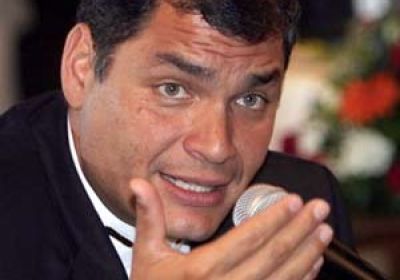 In the aftermath of a failed coup attempt on September 30, left-wing Ecuadorian President Rafael Correa has vowed to deepen his “citizen’s revolution” in the small Andean country. After the coup attempt by sections of the police and armed forces failed amid pro-government protests, Correa’s approval rate has surged to 75% in some polls. In response, Correa, said his government had not done enough to implement its pro-people program and would radicalise its project to build a “socialism of the 21st century”.
In the aftermath of a failed coup attempt on September 30, left-wing Ecuadorian President Rafael Correa has vowed to deepen his “citizen’s revolution” in the small Andean country. After the coup attempt by sections of the police and armed forces failed amid pro-government protests, Correa’s approval rate has surged to 75% in some polls. In response, Correa, said his government had not done enough to implement its pro-people program and would radicalise its project to build a “socialism of the 21st century”. -
 Coasting on the back of environmental protests and a hemorrhaging two-party system, the German Greens have sent shock waves through German politics, surging into the position of main opposition party for the first time. The Greens, who were part of a coalition government with the Social Democratic Party (SPD) from 1998-2005 at the expense of many of the party’s principles, are benefiting from the unraveling of Germany’s traditional two-party system.
Coasting on the back of environmental protests and a hemorrhaging two-party system, the German Greens have sent shock waves through German politics, surging into the position of main opposition party for the first time. The Greens, who were part of a coalition government with the Social Democratic Party (SPD) from 1998-2005 at the expense of many of the party’s principles, are benefiting from the unraveling of Germany’s traditional two-party system. -
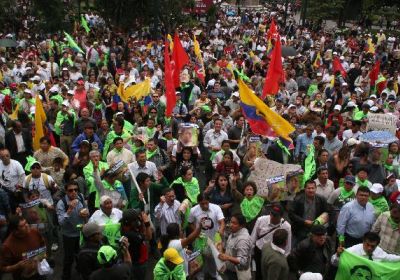 The attempted coup d’etat in Ecuador on September 30 against the left-wing government of Rafael Correa was defeated by loyal troops and the mass mobilisation of Correa’s supporters. The event underscores the turbulent history of the small Andean nation. It also exposes some of the weaknesses of Ecuador’s revolutionary movement, which is part of a broader Latin American movement against US domination and for regional unity and social justice.
The attempted coup d’etat in Ecuador on September 30 against the left-wing government of Rafael Correa was defeated by loyal troops and the mass mobilisation of Correa’s supporters. The event underscores the turbulent history of the small Andean nation. It also exposes some of the weaknesses of Ecuador’s revolutionary movement, which is part of a broader Latin American movement against US domination and for regional unity and social justice.